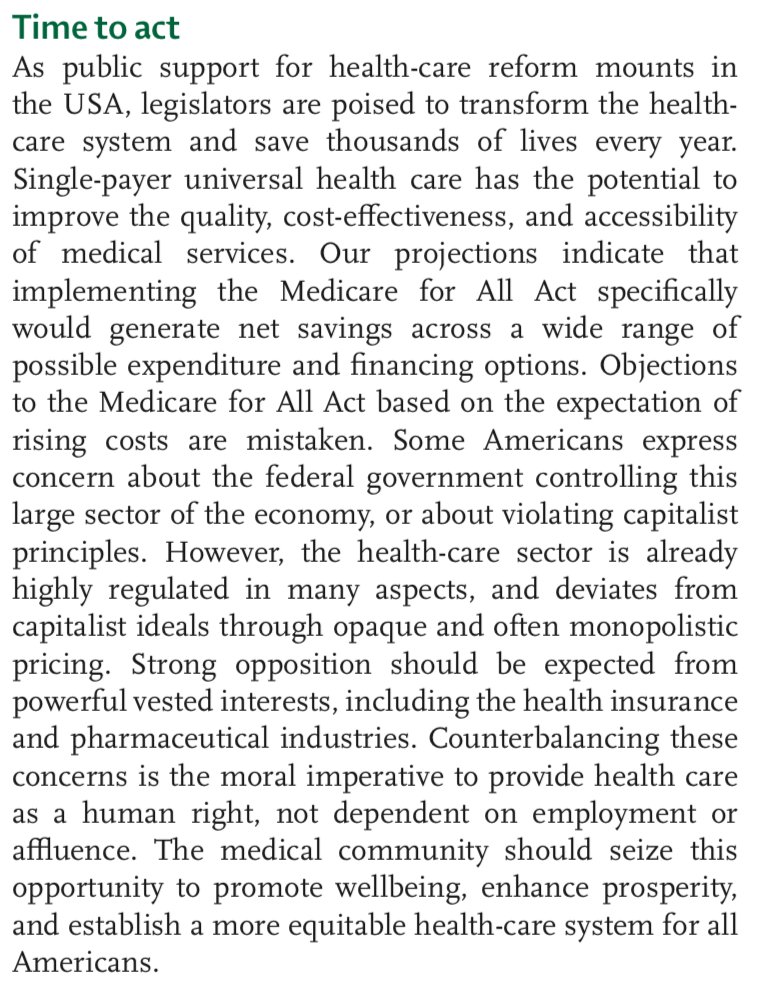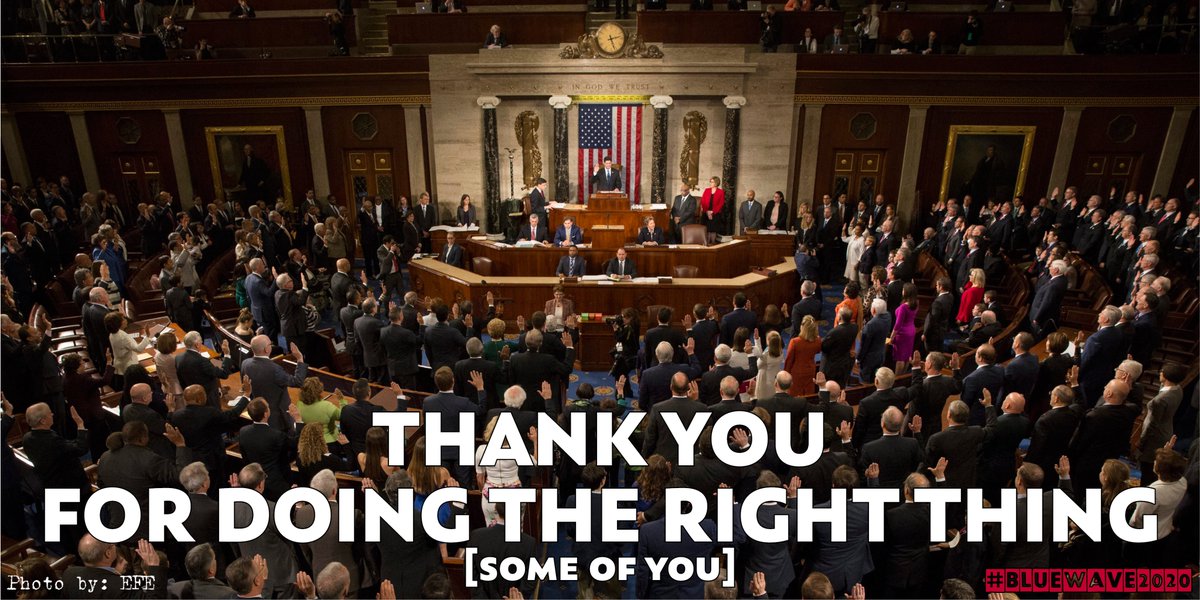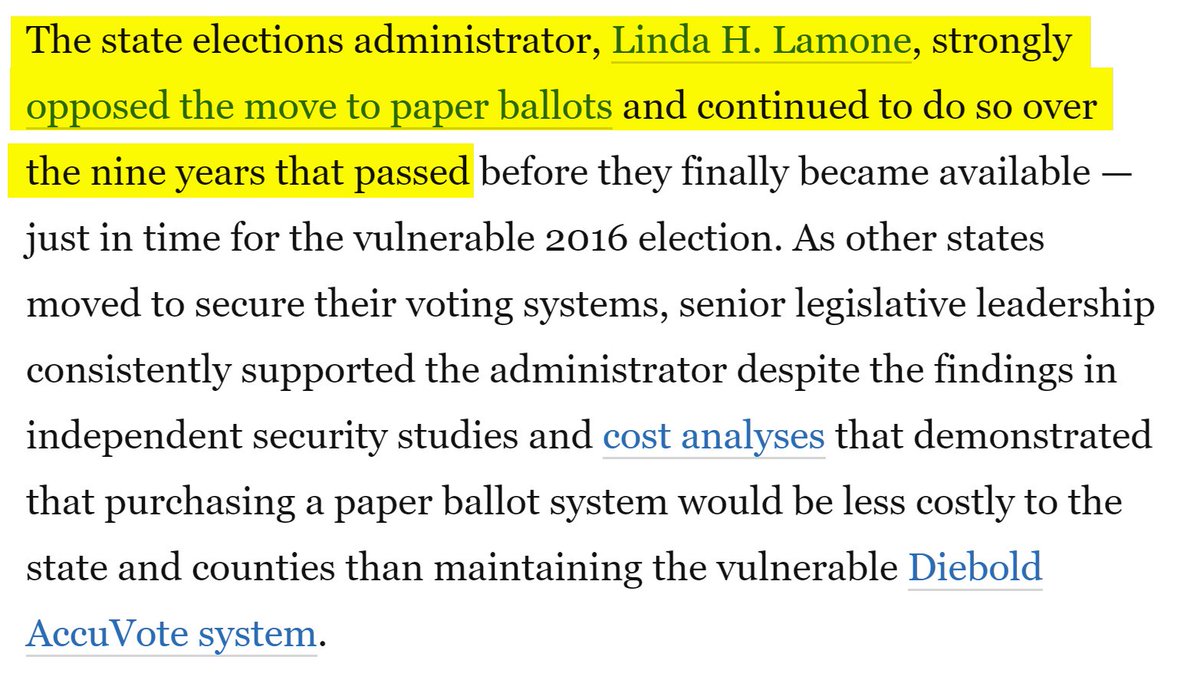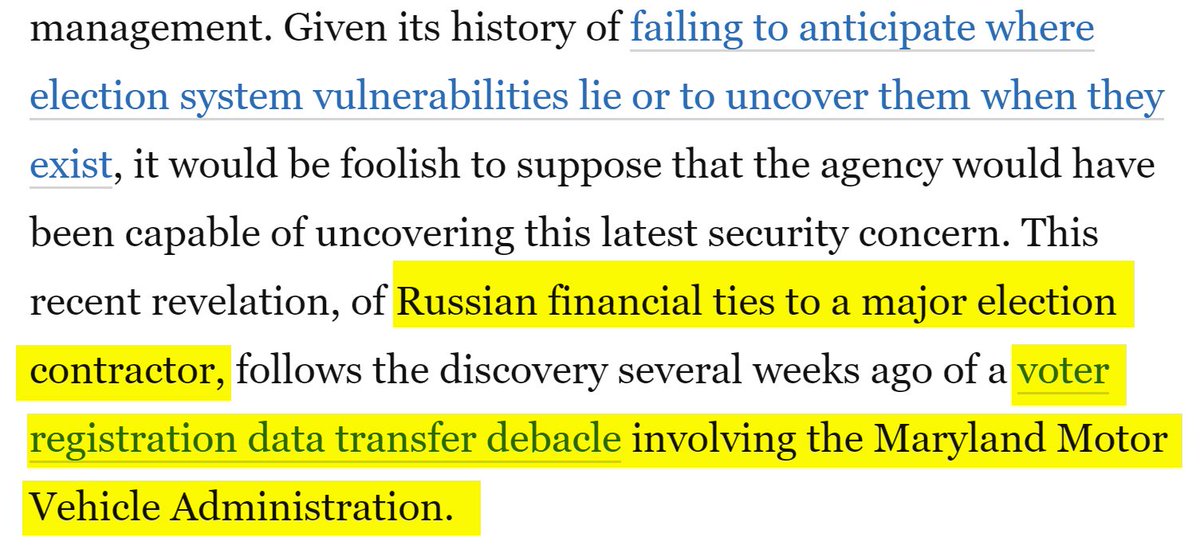And the findings are astounding. A Thread [1/12]:
There are 3 main findings. Ensuring health care for all Americans would (1) save more than 68,000 lives
Here's the breakdown and where most of the savings come from:
- doctors doing less paperwork which helps avoid burnout, and lets them focus on actual caregiving
- Through a single-payer system, 4% of health-care expenditure is estimated to be eliminated through fraud detection.
[10/12]
[11/12]









